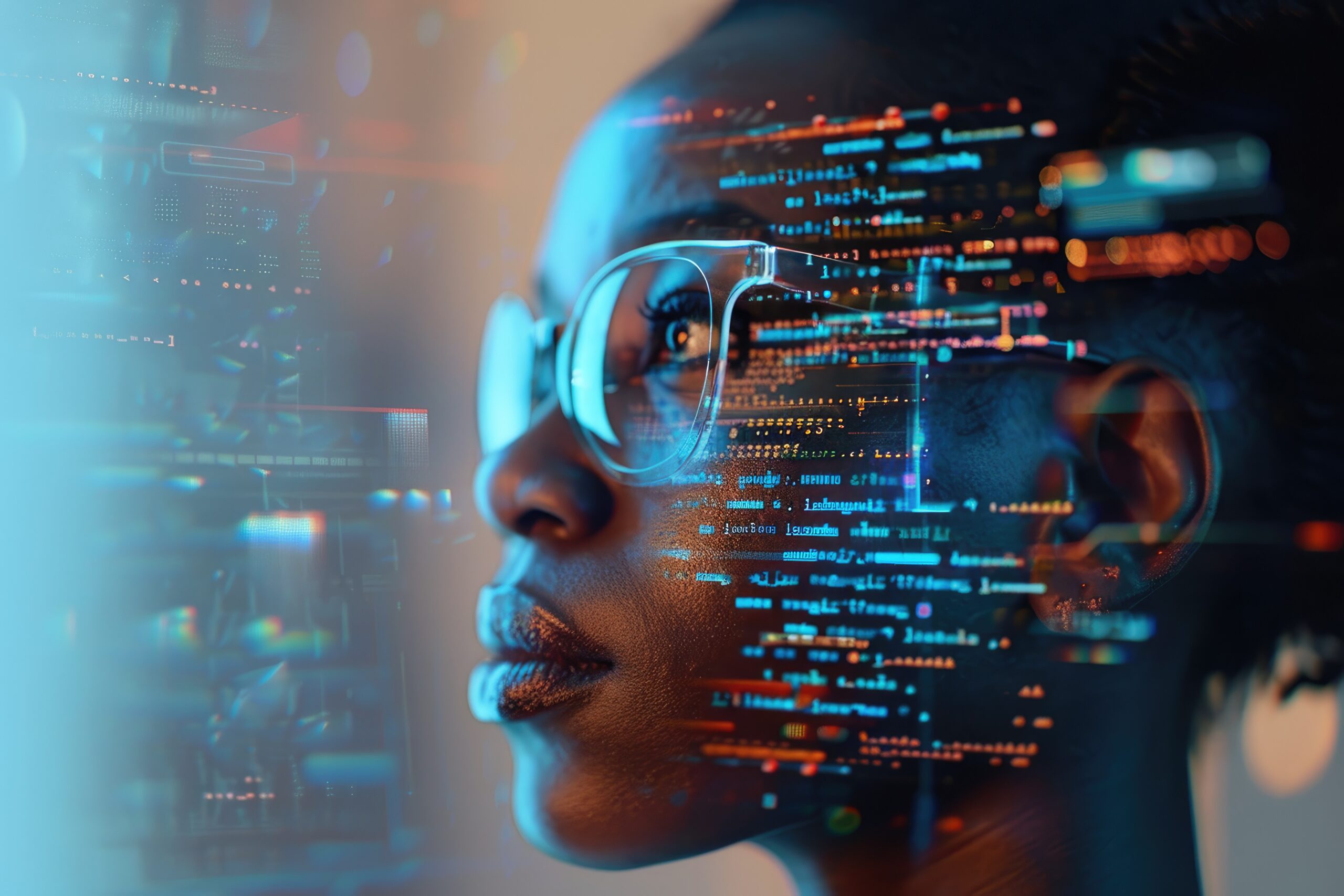How to Access and Use OpenAI SearchGPT: Your Step-by-Step Guide
Navigating the Future of Information Retrieval
Imagine a world where finding information is as easy as having a conversation with an all-knowing friend.
That’s the promise of OpenAI SearchGPT, a groundbreaking new search engine that’s set to revolutionize how we interact with the vast sea of information on the internet.
In this comprehensive guide, we’ll dive deep into the world of OpenAI SearchGPT, exploring its features, benefits, and how you can harness its power to transform your online searches.
Whether you’re a curious beginner or a tech-savvy enthusiast, this article will provide you with everything you need to know about accessing and using OpenAI SearchGPT effectively.
So, buckle up and get ready to embark on an exciting journey into the future of search technology!
We strongly recommend that you check out our guide on how to take advantage of AI in today’s passive income economy.
Table of Contents
What is OpenAI SearchGPT?
OpenAI SearchGPT represents a paradigm shift in the world of search engines.
Unlike traditional search engines that rely on keyword matching and link analysis, OpenAI SearchGPT leverages advanced artificial intelligence and natural language processing to understand and respond to user queries in a more human-like manner.
This innovative approach allows for more nuanced and context-aware search results, making it easier for users to find exactly what they’re looking for.
At its core, OpenAI SearchGPT is built on the same technology that powers ChatGPT, OpenAI’s widely acclaimed language model.
This means that the search engine can not only find relevant information but also synthesize and present it in a coherent, conversational format.
The result is a search experience that feels more like asking a knowledgeable assistant for help rather than sifting through pages of search results.
Key Features of OpenAI SearchGPT
OpenAI SearchGPT boasts several features that set it apart from traditional search engines.
One of its most notable capabilities is its ability to understand natural language queries.
Users can ask questions in plain English (or other supported languages) without worrying about specific keywords or search operators.
This makes the search process more intuitive and accessible to users of all technical backgrounds.
Another standout feature of OpenAI SearchGPT is its ability to provide direct answers to questions.
Instead of simply listing relevant web pages, the search engine often extracts and synthesizes information to give users a concise, accurate response right on the results page.
This can save significant time and effort, especially for straightforward queries.
OpenAI SearchGPT also excels at understanding context and intent.
It can interpret the nuances of a query and provide results that align with the user’s underlying needs, even if they’re not explicitly stated.
This contextual understanding enables more relevant and personalized search results.
Additionally, OpenAI SearchGPT offers real-time information updates, ensuring that users have access to the most current data available.
This is particularly useful for topics that are rapidly evolving or time-sensitive.
How to Access OpenAI SearchGPT
Accessing OpenAI SearchGPT is a straightforward process, but it’s important to note that availability may vary depending on your location and the current stage of the rollout.
As of now, OpenAI SearchGPT is being released gradually to ensure a smooth launch and gather user feedback.
Here’s a step-by-step guide to help you access this innovative search engine:
Step 1: Check Availability
The first step in accessing OpenAI SearchGPT is to check if it’s available in your region.
OpenAI typically announces new releases and updates on their official website and social media channels.
Keep an eye on these platforms for the latest information about OpenAI SearchGPT’s availability.
You can also sign up for OpenAI’s newsletter to receive updates directly in your inbox.
It’s worth noting that during the initial rollout, access to OpenAI SearchGPT might be limited to certain geographic areas or user groups.
Step 2: Create an OpenAI Account
Once you’ve confirmed that OpenAI SearchGPT is available in your region, the next step is to create an OpenAI account if you don’t already have one.
Visit the official OpenAI website and look for the sign-up or registration option.
You’ll typically need to provide some basic information, such as your name, email address, and a secure password.
Some additional verification steps, like email confirmation or phone number verification, may be required to complete the registration process.
It’s important to use a valid email address as this will be your primary means of communication with OpenAI.
Step 3: Agree to Terms of Service
After creating your account, you’ll need to carefully read and agree to OpenAI’s terms of service and privacy policy.
These documents outline the rules and guidelines for using OpenAI SearchGPT, as well as how your data will be collected, used, and protected.
It’s crucial to understand these terms before proceeding, as they govern your use of the platform and your rights as a user.
If you have any questions or concerns about the terms, it’s advisable to reach out to OpenAI’s support team for clarification.
Step 4: Access the OpenAI SearchGPT Interface
Once your account is set up and you’ve agreed to the terms, you should be able to access the OpenAI SearchGPT interface.
This may be through a dedicated web page, a browser extension, or potentially a mobile app, depending on how OpenAI has chosen to distribute the service.
Look for clear instructions or a “Get Started” button that will guide you to the search interface.
The interface should be clean and intuitive, typically featuring a prominent search bar where you can enter your queries.
Step 5: Familiarize Yourself with the Interface
Before diving into your first search, take some time to explore the OpenAI SearchGPT interface.
Look for any tutorial or onboarding materials that OpenAI may have provided to help new users get acquainted with the system.
Pay attention to any additional features or settings that you can customize to enhance your search experience.
These might include language preferences, search filters, or display options.
Familiarizing yourself with these tools will help you make the most of OpenAI SearchGPT’s capabilities.
Using OpenAI SearchGPT Effectively
Now that you have access to OpenAI SearchGPT, it’s time to learn how to use it effectively.
The key to getting the most out of this AI-powered search engine lies in understanding its capabilities and adapting your search strategies accordingly.
Here are some tips and techniques to help you maximize your OpenAI SearchGPT experience:
Embrace Natural Language Queries
One of the biggest advantages of OpenAI SearchGPT is its ability to understand and process natural language queries.
Unlike traditional search engines where you might use short, keyword-based searches, with OpenAI SearchGPT, you can ask questions or make requests just as you would in a conversation.
For example, instead of typing “weather New York tomorrow,” you could ask, “What’s the weather forecast for New York City tomorrow, and should I bring an umbrella?”
This approach allows for more nuanced and specific queries, potentially leading to more accurate and helpful results.
Don’t be afraid to be specific and detailed in your searches, as OpenAI SearchGPT is designed to handle complex queries.
Leverage Context and Follow-Up Questions
OpenAI SearchGPT excels at maintaining context throughout a search session.
This means you can ask follow-up questions or request more information about a topic without having to restate the entire query.
For instance, if you’ve just searched for information about the French Revolution, you could follow up with questions like “What were the main causes?” or “How did it impact other European countries?” without needing to mention the French Revolution again.
This conversational approach can lead to a more natural and efficient search experience, allowing you to dig deeper into topics with ease.
Utilize Advanced Search Features
While OpenAI SearchGPT’s natural language processing capabilities are impressive, it also offers advanced search features for users who want more control over their results.
These may include options to filter results by date, source type, or relevance.
Additionally, OpenAI SearchGPT might support advanced operators similar to those used in traditional search engines, such as quotation marks for exact phrase matching or minus signs to exclude certain terms.
Familiarize yourself with these features to refine your searches and get more precise results when needed.
Explore Multi-Modal Searches
As AI technology advances, OpenAI SearchGPT may incorporate multi-modal search capabilities, allowing users to combine text queries with images, audio, or even video.
While this feature may not be available immediately, keep an eye out for updates that could enable more diverse and rich search experiences.
For example, you might be able to upload an image and ask questions about its contents, or combine a text query with a voice recording for more nuanced searches.
Provide Feedback and Refine Your Queries
OpenAI SearchGPT is designed to learn and improve over time, both on an individual user basis and as a whole.
Take advantage of any feedback mechanisms provided to help the system understand when results are particularly helpful or miss the mark.
This feedback can help improve future search results for you and other users.
Additionally, if you’re not getting the results you want, try rephrasing your query or adding more context.
Sometimes, a slight change in how you ask a question can lead to significantly better results.
Understanding OpenAI SearchGPT’s Limitations
While OpenAI SearchGPT represents a significant leap forward in search technology, it’s important to understand its limitations and potential drawbacks.
Being aware of these limitations can help you use the tool more effectively and maintain realistic expectations.
Here are some key points to keep in mind:
Potential for Bias and Inaccuracies
Like all AI systems, OpenAI SearchGPT is trained on large datasets that may contain biases or inaccuracies.
While efforts are made to minimize these issues, it’s important to approach results with a critical eye, especially for sensitive or controversial topics.
Cross-referencing important information with other reputable sources is always a good practice.
Additionally, OpenAI SearchGPT’s responses are generated based on its training data, which may not always be up-to-date or comprehensive.
For time-sensitive or rapidly evolving topics, it’s wise to verify the information with current sources.
Privacy and Data Usage Concerns
As with any online service, using OpenAI SearchGPT involves sharing some of your data.
While OpenAI has privacy policies in place, it’s important to be aware of what information is being collected and how it’s being used.
This may include your search queries, location data, and usage patterns.
If you have concerns about privacy, take the time to review OpenAI’s privacy policy and adjust your usage accordingly.
Some users might choose to use OpenAI SearchGPT only for non-sensitive searches or use privacy-enhancing tools like VPNs when accessing the service.
Dependence on Internet Connectivity
OpenAI SearchGPT requires a stable internet connection to function effectively.
Unlike some traditional search engines that might offer limited offline functionality, AI-powered searches typically need real-time access to vast amounts of data and processing power.
This dependence on connectivity could be a limitation in areas with poor internet access or during network outages.
Having a backup search method or offline resources for critical information can be helpful in such situations.
Potential for Overreliance
The convenience and capabilities of OpenAI SearchGPT might lead some users to rely too heavily on it for information and decision-making.
While it’s a powerful tool, it’s important to maintain critical thinking skills and not treat AI-generated responses as infallible.
Developing a balanced approach that combines AI-assisted searches with traditional research methods and critical analysis is crucial.
This is especially important for complex topics or decisions with significant consequences.
Ethical Considerations
The use of AI in information retrieval raises various ethical questions.
These include concerns about the potential amplification of misinformation, the impact on human knowledge and research skills, and the broader societal implications of increasingly sophisticated AI systems.
As a user of OpenAI SearchGPT, it’s worth considering these ethical dimensions and forming your own views on responsible AI use.
Engaging in discussions about the ethical implications of AI in search can contribute to the ongoing dialogue about responsible technology development.
The Future of OpenAI SearchGPT
As we look to the horizon, the future of OpenAI SearchGPT appears both exciting and full of potential.
This innovative search engine is likely to evolve rapidly, incorporating new features and capabilities that could further transform how we interact with information online.
Let’s explore some potential developments and their implications for users and the broader digital landscape.
Enhanced Personalization
One of the most promising areas for future development is enhanced personalization.
As OpenAI SearchGPT learns from user interactions, it could become increasingly adept at tailoring search results to individual preferences, interests, and needs.
This might involve remembering past queries, understanding user context, and even anticipating information needs before they’re explicitly expressed.
Imagine a search engine that not only answers your questions but also proactively suggests relevant information based on your browsing history, location, and current activities.
While this level of personalization offers exciting possibilities, it also raises important questions about privacy and data use that will need to be carefully addressed.
Integration with Other AI Systems
The future may see OpenAI SearchGPT becoming more deeply integrated with other AI systems and tools.
This could include seamless connections with virtual assistants, smart home devices, and productivity software.
For example, you might be able to start a search query on your smartphone, continue it through your smart speaker, and have the results displayed on your smart TV or augmented reality glasses.
This integration could create a more unified and intuitive digital experience, where search becomes an ambient, ever-present capability rather than a discrete task.
Expansion of Multi-Modal Capabilities
As AI technology advances, OpenAI SearchGPT is likely to expand its multi-modal capabilities.
This could mean more sophisticated processing of images, audio, and video as part of search queries.
Users might be able to combine text, voice, images, and even gestures to formulate complex queries that capture nuanced information needs.
For instance, you could show the search engine a picture of a plant, ask about its care requirements verbally, and receive a detailed response that takes into account visual cues from the image and the specifics of your verbal query.
Real-Time Information Synthesis
Future versions of OpenAI SearchGPT might offer even more advanced real-time information synthesis capabilities.
Instead of just providing links or extracted information, the search engine could dynamically create comprehensive, up-to-the-minute reports on complex topics.
This could be particularly valuable for researchers, journalists, and anyone needing to quickly grasp evolving situations or multifaceted issues.
Imagine asking for a detailed analysis of a breaking news event and receiving a balanced, well-sourced report that’s generated in real-time, incorporating the latest developments from multiple reliable sources.
Improved Language Understanding and Translation
As natural language processing technologies continue to advance, OpenAI SearchGPT could become even more adept at understanding and processing queries in multiple languages.
This could include more nuanced interpretation of idiomatic expressions, cultural references, and context-dependent meanings.
Additionally, we might see real-time, high-quality translation capabilities integrated directly into the search process, allowing users to seamlessly access and understand information from sources in any language.
This could dramatically expand access to global knowledge and foster greater cross-cultural understanding.
Practical Applications of OpenAI SearchGPT
As we delve deeper into the capabilities of OpenAI SearchGPT, it’s important to explore its practical applications across various fields and industries.
This innovative search engine has the potential to revolutionize how we approach research, decision-making, and problem-solving in both professional and personal contexts.
Let’s examine some of the key areas where OpenAI SearchGPT could make a significant impact:
Academic Research and Education
In the realm of academia, OpenAI SearchGPT could be a game-changer for both students and researchers.
Its ability to understand complex queries and synthesize information from multiple sources could greatly enhance the literature review process, helping researchers quickly identify relevant studies and emerging trends in their field.
For students, OpenAI SearchGPT could serve as a powerful learning tool, providing detailed explanations of complex concepts and helping to connect ideas across different subjects.
However, it’s crucial that educational institutions develop guidelines for its appropriate use to ensure academic integrity and encourage critical thinking skills.
Journalism and Fact-Checking
Journalists and fact-checkers could leverage OpenAI SearchGPT to rapidly gather information on breaking news stories or to verify claims made by public figures.
The search engine’s ability to process and synthesize large amounts of data could help reporters identify patterns and connections that might otherwise be missed.
Additionally, its natural language processing capabilities could assist in analyzing public statements and documents for inconsistencies or noteworthy information.
As with any tool, journalists would need to use OpenAI SearchGPT in conjunction with traditional reporting methods and human judgment to ensure accuracy and ethical reporting.
Legal Research and Practice
In the legal field, OpenAI SearchGPT could streamline the process of case law research and statutory interpretation.
Lawyers could use the tool to quickly find relevant precedents, analyze legal documents, and stay updated on changes in legislation.
The search engine’s ability to understand context and nuance could be particularly valuable in navigating the complexities of legal language.
However, legal professionals would need to be cautious about over-reliance on AI-generated insights and should always verify crucial information through authoritative legal sources.
Healthcare and Medical Research
OpenAI SearchGPT could play a vital role in healthcare by helping medical professionals stay up-to-date with the latest research and treatment protocols.
Its ability to process and synthesize information from medical journals and clinical trials could aid in evidence-based decision-making.
Additionally, the search engine could assist in diagnosing rare conditions by quickly identifying similar case studies or potential treatments.
However, it’s crucial to note that OpenAI SearchGPT should be used as a supportive tool rather than a replacement for professional medical judgment and established diagnostic processes.
Business Intelligence and Market Research
In the business world, OpenAI SearchGPT could revolutionize market research and competitive intelligence.
Companies could use the tool to analyze industry trends, track competitor activities, and identify emerging market opportunities.
The search engine’s ability to process and synthesize information from various sources could provide businesses with a more comprehensive and nuanced understanding of their market landscape.
This could lead to more informed strategic decision-making and potentially uncover innovative opportunities for growth and development.
Personal Knowledge Management
On a personal level, OpenAI SearchGPT could serve as a powerful tool for lifelong learning and personal knowledge management.
Users could leverage the search engine to explore new topics, deepen their understanding of complex subjects, and make connections between different areas of knowledge.
The conversational nature of OpenAI SearchGPT could make it feel more like consulting a knowledgeable mentor than a traditional search engine, potentially encouraging more in-depth exploration of topics and fostering curiosity.
Developing Critical Skills for the AI Search Era
As OpenAI SearchGPT and similar AI-powered search tools become more prevalent, it’s crucial for users to develop a new set of skills to navigate this evolving digital landscape effectively.
These skills will help ensure that we can harness the full potential of AI search while maintaining critical thinking and avoiding potential pitfalls.
Let’s explore some of the key competencies that will be valuable in the AI search era:
Information Literacy in the Age of AI
Traditional information literacy skills need to be adapted for the age of AI-powered search.
This includes understanding how AI search engines like OpenAI SearchGPT work, what their strengths and limitations are, and how to critically evaluate the information they provide.
Users should be able to distinguish between factual information, AI-generated summaries, and potentially biased or inaccurate content.
Developing the ability to cross-reference information from multiple sources and recognize the need for human expertise on complex or sensitive topics will be crucial.
Effective Query Formulation
While OpenAI SearchGPT excels at understanding natural language, formulating effective queries is still an important skill.
Users should learn how to ask clear, specific questions that capture the essence of their information needs.
This includes understanding how to provide relevant context, break down complex inquiries into manageable parts, and use follow-up questions to refine results.
Mastering the art of query formulation can lead to more accurate and useful search outcomes.
Ethical Use of AI Search Tools
As AI search tools become more powerful, it’s important to develop a strong ethical framework for their use.
This includes understanding the potential societal impacts of AI search, respecting intellectual property rights, and being mindful of privacy concerns.
Users should also be aware of the potential for these tools to reinforce biases or spread misinformation if not used critically.
Developing a sense of responsibility in how we use and share information obtained through AI search is crucial for maintaining a healthy information ecosystem.
Balancing AI Assistance with Human Judgment
While OpenAI SearchGPT can provide valuable information and insights, it’s essential to maintain a balance between AI assistance and human judgment.
Users should develop the skill of knowing when to rely on AI search results and when to seek human expertise or conduct more traditional forms of research.
This involves understanding the limitations of AI, recognizing situations that require nuanced human interpretation, and maintaining healthy skepticism towards AI-generated content.
Continuous Learning and Adaptability
As AI search technology evolves rapidly, users need to cultivate a mindset of continuous learning and adaptability.
This includes staying informed about new features and capabilities of tools like OpenAI SearchGPT, understanding emerging best practices for their use, and being open to adjusting search strategies as the technology advances.
Embracing a growth mindset and viewing AI search as a tool to enhance, rather than replace, human intelligence will be key to thriving in this new era.
The Societal Impact of AI-Powered Search
As we conclude our exploration of OpenAI SearchGPT, it’s important to consider the broader societal implications of AI-powered search technology.
The widespread adoption of tools like OpenAI SearchGPT has the potential to significantly impact how we access, process, and interact with information on a global scale.
Let’s examine some of the key areas where these changes might be felt:
Democratization of Knowledge
AI-powered search engines like OpenAI SearchGPT have the potential to democratize access to information in unprecedented ways.
By making complex information more accessible and easier to understand, these tools could help bridge knowledge gaps and empower individuals from diverse backgrounds.
This could lead to increased global collaboration, faster scientific advancements, and more informed decision-making at all levels of society.
However, it’s crucial to ensure that access to these technologies is equitable and that efforts are made to prevent the creation of new digital divides.
Changing Nature of Expertise
The rise of AI search could lead to a shift in how we perceive and value expertise.
While human experts will always be crucial, especially in areas requiring nuanced judgment or ethical considerations, AI search tools might change the role of generalists and information intermediaries.
This could lead to a greater emphasis on skills like critical thinking, information synthesis, and the ability to ask the right questions, rather than mere factual recall.
Educational systems and professional development programs may need to adapt to prepare individuals for this changing landscape.
Impact on Privacy and Data Governance
As AI search engines become more sophisticated and personalized, they will inevitably collect and process vast amounts of user data.
This raises important questions about privacy, data ownership, and the ethical use of personal information.
Societies will need to grapple with finding the right balance between the benefits of personalized AI search and the protection of individual privacy rights.
This may lead to new regulations, data governance frameworks, and technological solutions aimed at ensuring responsible AI development and use.
Influence on Public Discourse and Decision-Making
AI-powered search engines have the potential to significantly influence public discourse and decision-making processes.
By shaping how people access and interpret information, these tools could impact everything from personal opinions to policy decisions.
This power comes with great responsibility, and it will be crucial to develop mechanisms to ensure transparency, accountability, and fairness in how AI search results are generated and presented.
Public awareness and education about the capabilities and limitations of AI search will be essential in fostering a well-informed society.
Economic and Workforce Implications
The widespread adoption of AI search tools like OpenAI SearchGPT could have significant implications for various industries and job markets.
While it may create new opportunities in AI development, data analysis, and related fields, it could also disrupt traditional roles in information services, research, and knowledge work.
Preparing for these changes will require proactive workforce development strategies and a reimagining of certain professional roles to complement rather than compete with AI capabilities.
As we stand on the cusp of this new era in information technology, it’s clear that OpenAI SearchGPT and similar AI-powered search tools have the potential to profoundly impact how we interact with information and knowledge.
By understanding these tools, developing critical skills, and thoughtfully considering their broader implications, we can work towards harnessing their power for the benefit of society while mitigating potential risks.
The journey into the age of AI-powered search is just beginning, and it promises to be a transformative one for individuals, organizations, and society as a whole.
Conclusion
OpenAI SearchGPT represents a significant leap forward in search technology, offering a more intuitive, conversational, and context-aware approach to information retrieval.
By leveraging advanced AI and natural language processing, it promises to transform how we interact with the vast sea of information available online.
As we’ve explored in this guide, accessing and using OpenAI SearchGPT effectively involves understanding its capabilities, embracing natural language queries, and leveraging its advanced features.
While the tool offers exciting possibilities, it’s also important to be aware of its limitations and approach its use with a critical and balanced perspective.
Looking to the future, OpenAI SearchGPT is likely to evolve in ways that further personalize the search experience, integrate with other AI systems, and expand its multi-modal capabilities.
These developments could lead to even more powerful and intuitive ways of accessing and synthesizing information.
As users of this technology, we have the opportunity to shape its development through our feedback and responsible use.
By engaging thoughtfully with tools like OpenAI SearchGPT, we can contribute to a future where advanced AI enhances our ability to learn, discover, and make informed decisions.
The journey of AI-powered search is just beginning, and OpenAI SearchGPT is at the forefront of this exciting evolution.
As we continue to explore and harness its capabilities, we may find ourselves on the cusp of a new era in human-computer interaction and information access.
Frequently Asked Questions (FAQ)
How to use OpenAI and ChatGPT?
To use OpenAI’s ChatGPT:
- Visit the OpenAI website (openai.com) and create an account.
- Once logged in, navigate to the ChatGPT interface.
- Type your question or prompt into the chat box.
- Press enter or click the send button to receive a response.
- Continue the conversation by asking follow-up questions or providing new prompts.
Tips for effective use:
- Be clear and specific in your queries
- Provide context when necessary
- Experiment with different phrasings if you’re not getting the desired results
- Remember that ChatGPT’s knowledge has a cutoff date and may not include very recent information
Always review and verify important information, especially for critical or sensitive topics.
How does OpenAI work?
OpenAI works by utilizing advanced machine learning techniques, particularly large language models trained on vast amounts of text data. Here’s a simplified explanation of the process:
- Data Collection: OpenAI gathers enormous datasets of text from various sources across the internet.
- Training: The AI models are trained on this data, learning patterns, relationships, and structures in language.
- Fine-tuning: Models are further refined for specific tasks or to adhere to certain guidelines.
- Inference: When a user inputs a query, the model processes it and generates a response based on its training.
- Continuous Improvement: OpenAI constantly works on improving its models through research, user feedback, and iterative development.
It’s worth noting that the exact details of OpenAI’s technology are proprietary and may evolve over time.
How to make money with OpenAI GPT?
There are several ways to potentially monetize OpenAI’s GPT technology:
- Develop Applications: Create apps or services that leverage GPT for specific industries or use cases.
- Content Creation: Use GPT to assist in generating articles, scripts, or marketing copy more efficiently.
- Consulting: Offer expertise on implementing AI solutions for businesses.
- Education: Create courses or tutorials teaching others how to use GPT effectively.
- API Integration: Integrate GPT into existing products or services to enhance their capabilities.
- Research and Development: Contribute to the advancement of AI technology through research projects.
- AI-assisted Services: Offer services like chatbots, virtual assistants, or automated customer support powered by GPT.
Remember that while GPT can be a powerful tool, successful monetization requires creativity, business acumen, and adherence to ethical guidelines and licensing agreements. Always ensure you’re using the technology in compliance with OpenAI’s terms of service and applicable laws.

We strongly recommend that you check out our guide on how to take advantage of AI in today’s passive income economy.




